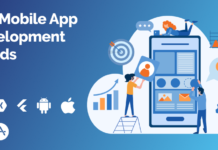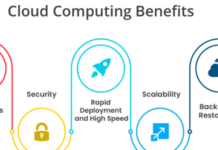Introduction
In today’s fast-paced business environment, effective project management is crucial for success. Project management software has emerged as an essential tool for teams aiming to streamline their workflows, enhance collaboration, and achieve their goals efficiently. This article explores what project management software is, its benefits, and current trends in the market.
What Is Project Management Software?
Project management software is a digital tool designed to assist teams in planning, executing, and monitoring projects. These applications provide a centralized platform where team members can collaborate, share resources, and track progress in real time.
Key Features of Project Management Software:
- Task Management: Organizes tasks and assigns responsibilities to team members, ensuring accountability.
- Collaboration Tools: Facilitates communication through chat, file sharing, and discussion boards.
- Time Tracking: Monitors time spent on tasks, helping teams stay on schedule and within budget.
- Reporting and Analytics: Generates reports that provide insights into project performance, resource allocation, and team productivity.
Benefits of Project Management Software
- Enhanced Collaboration
- Project management software fosters communication among team members, breaking down silos and ensuring everyone is on the same page. This leads to better teamwork and quicker problem-solving.
- Improved Efficiency
- By automating routine tasks and providing a clear overview of project timelines, project management software helps teams work more efficiently. This allows for better prioritization and resource allocation.
- Better Time Management
- With features like time tracking and deadline reminders, teams can manage their time effectively, reducing the likelihood of missed deadlines and project delays.
- Increased Accountability
- Assigning tasks and tracking progress creates a culture of accountability, ensuring that everyone is responsible for their contributions to the project.
- Data-Driven Decision Making
- Reporting and analytics features provide valuable insights into project performance, enabling teams to make informed decisions and adjustments as needed.
Current Trends in Project Management Software
- Integration with Other Tools
- Modern project management software increasingly integrates with other business applications, such as CRM and accounting tools, to provide a seamless workflow and centralized data management.
- Mobile Accessibility
- As remote work continues to rise, project management software is becoming more mobile-friendly, allowing team members to access project information and collaborate on the go.
- AI and Automation
- Artificial intelligence is being leveraged to enhance project management software, offering features like predictive analytics, automated reporting, and intelligent task assignments.
- Focus on User Experience
- User-friendly interfaces and customizable dashboards are becoming essential, making it easier for teams to adopt and utilize the software effectively.
- Agile Methodologies
- Many project management tools are adapting to support agile methodologies, enabling teams to iterate quickly and respond to changing project requirements.
Conclusion
Project management software is a vital resource for teams looking to enhance their efficiency and collaboration. By understanding its benefits and staying updated on the latest trends, organizations can choose the right tools to meet their project management needs.
To explore the latest in project management software and discover tools that can enhance your team’s productivity, subscribe to our newsletter and join our community of project management professionals!




